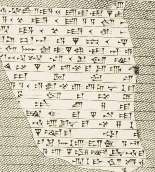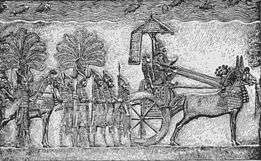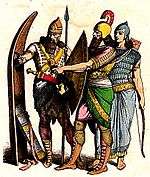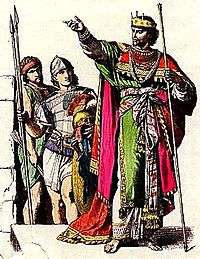Siege of Azekah
| Siege of Azekah | |||||||
|---|---|---|---|---|---|---|---|
| Part of Sennacherib's campaign in Judah | |||||||
 Azekah Inscription | |||||||
| |||||||
| Belligerents | |||||||
|
|
| ||||||
| Commanders and leaders | |||||||
| Sennacherib | Unknown | ||||||
| Strength | |||||||
| Unknown | Unknown | ||||||
| Casualties and losses | |||||||
| Unknown | Heavy | ||||||
The Siege of Azekah was a battle between Assyria and Judah. It preceded the Siege of Lachish, making it the first known clash between the two kingdoms during Sennacherib's campaign in Judah.
Background
Several kingdoms in the Levant ceased to pay taxes for the Assyrian King, Sennacherib, as a result, he set out on a campaign to once again subjugate the rebelling Kingdoms, among them the Jewish King, Hezekiah. After defeating the rebels of Ekron in Philistia he set out to subjugate Judah and in his way to Jerusalem he came across Azekah, among the most important Jewish cities.
Battlefield
- The hill
Azekah is situated on a hill. It was walled, as were other important Jewish cities.
Forces of each side
The Assyrian army
 Sennacherib at the head of his army
Sennacherib at the head of his army Modern drawing of Assyrian troops as seen in Assyrian reliefs
Modern drawing of Assyrian troops as seen in Assyrian reliefs Assyrian troops with a siege engine
Assyrian troops with a siege engine
The Assyrian Army was the most effective force of its time and was divided mostly into three different categories:
- Infantry, which included both close-combat troops using spears, and archers. There were also hired mercenaries throwing stones. The infantry was highly trained and worked alongside military engineers in order to breach sieges.
- Cavalry, the Assyrian cavalry was among the finest in the ancient middle east and included both close-combat cavalry with spears and mounted archers which could both use the agility of the horses alongside long-range attacks.
- Chariots, which weren't used as much in sieges but more in regular land-engagements.
The Jewish army
 Modern depiction of a Jewish King and troops
Modern depiction of a Jewish King and troops
The Jewish military force was insignificant compared to the professional and massive Assyrian army and mostly included local militias and mercenaries. There were barely any cavalrymen and chariots in the Jewish army, which mostly included infantry, either for close combat (spearmen) or long range combat (archers); they were also significantly less organized.
The battle
The battle is depicted in the Azekah Inscription, in which Sennacherib mentions some details about the battle. He mentions that he used battering rams to bring down the walls which was followed by close quarters combat between the different sides' infantry. Afterwards Sennacherib ordered his cavalry to charge into the city, which led many of the defenders to run away.
Sennacherib then looted the city and burnt it down.
Aftermath
After the destruction and looting of the city Sennacherib then continued with his army further into Judah, where he once again commanded his army in the Siege of Lachish.